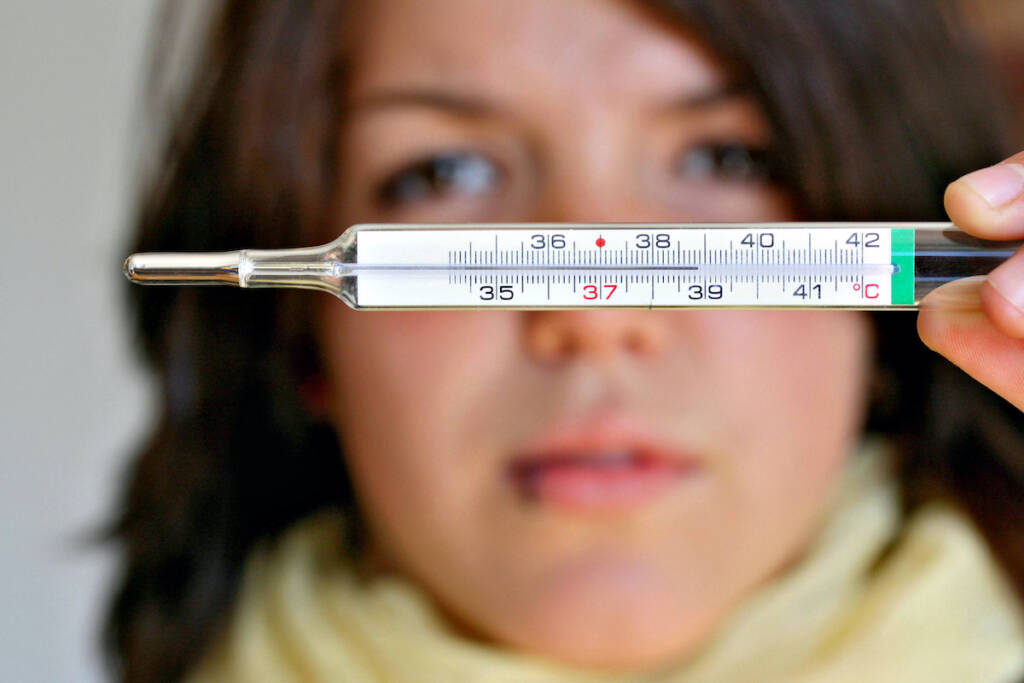Health
How to lower fever: the most effective remedies

How to lower the temperature: during the winter it is easy to get sick, so let's see what are the best remedies to try.
Especially in autumn and winter, fever is a very frequent complaint. Perhaps many do not know that fever is not a disease, but only a symptom. This means that you shouldn't ask yourself how to make the fever go away, but try to understand and treat the triggering disease. The fever is only a consequence, and once the cause is resolved, it will go down too.
Fever indicates the increase in body temperature , which rises above 37°C and can, in the most serious cases, even exceed 40°C. We speak of high fever when the temperature exceeds 38°C.
The causes of fever
The causes can be different, the most common are bacterial infections, viruses, non-infectious inflammations, intoxications, sun strokes. The alteration of the hypothalamic thermostat , which is the area of the brain that regulates body temperature, causes the temperature to increase. It is a defense system of the body, which raises the temperature to prevent viruses and bacteria from proliferating.

When the temperature is very high, especially in the presence of infections, it is necessary to take medicines, always under medical advice. If, on the other hand, it is mild, natural remedies against fever can also be used. So let's see some tricks that can be implemented to try to find some relief from the fever.
Fever: what are the associated symptoms
As we have anticipated, the main consequence of fever is the increase in body temperature. Malaise, joint and muscle pain, headache and feeling cold are also almost always present. Fever is commonly associated with seasonal flu, so high symptoms that may occur are dry cough and fatigue. When, on the other hand, it is due to infections, there is also pain in the affected part, for example the throat or ears. If you have a cold, you may have low-grade fever and nasal congestion.
How to lower the fever depending on the case
It is important to distinguish between high and low fever, as we must behave differently depending on the case. If the fever is not very high , in fact, i.e. it does not exceed 38°C, it is not necessary to try to lower it. Not only that: this practice can also prove counterproductive, because, as we have seen, fever is the body's first defense, which raises the temperature to destroy bacteria. It is therefore a very precious ally of our immune system.
Lowering it, therefore, risks slowing down or blocking the normal healing process. For this, you shouldn't be alarmed as soon as you see the temperature a little higher than normal, but simply rest a little and let it take its natural course.

When the fever is very high , on the other hand, therefore from 38°C upwards, it is better to try to lower it and keep it under control, because the brain could be damaged. In addition to antipyretic drugs, which are used to lower fever, sponging with warm water on the forehead, wrists, neck and legs is very effective. In the case of compresses it is important to be careful not to use water that is too cold, because the thermal shock could make the situation worse.
Natural remedies for fever: the most effective
Always if the fever is not very high and only after asking your doctor for advice, it is possible to resort to completely natural fever remedies .
Two of the most effective herbal remedies are white willow bark and Spirea Meadowsweet , which contain salicylates, substances from which the acetylsalicylic acid contained in the famous Aspirin derives.
As far as homeopathic remedies are concerned, in case of sudden and very high fever, Aconitum 9 CH is useful, to be taken every 3-6 hours. When the fever begins to go down and you start to sweat, Belladonna 9 CH should be taken, in the dose of 5 granules, to be repeated every hour. Finally, in case of low-grade fever, it would be better to take Ferrum Phosphoricum 9 CH. Obviously, we advise you to always seek the advice of your doctor.
How to bring down a fever with herbal teas
Some remedies for fever that can give relief are hot herbal teas : especially those based on linden , chamomile , mint, cinnamon , eucalyptus , elderberry , gentian, centaury and rhododendron. Drinking hot liquids, in fact, stimulates sweating and consequently the body temperature is reduced by dispersing excess heat. Ginger , lemon and honey herbal teas are also excellent. It is also advisable to rest as much as possible, in the heat and not to tire yourself too much.
High fever: pharmacological remedies
In case of very high fever, what to do? First of all, if the temperature exceeds 39°C for a long time, you need to call a doctor, to check that there is not some serious infection in progress, which requires specific treatments, such as antibiotics.
To lower the temperature when it exceeds 38.5°C, the best drug is paracetamol . This can be taken by both adults and children and its antipyretic principle lowers fever and acts as an analgesic. An alternative is Aspirin, which is also suitable for colds and flu symptoms. Ibuprofen is also an excellent anti-inflammatory that exerts antipyretic actions. It is also necessary to stay in bed and do sponge baths with warm water, as previously recommended.
Riproduzione riservata © - WT











